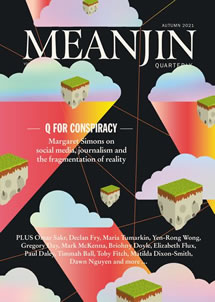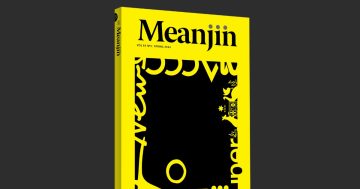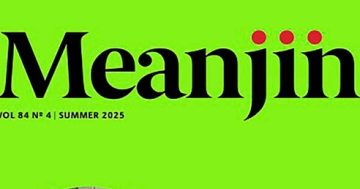Reviewed by Rama Gaind.
Edited by Jonathan Green, Melbourne University Publishing, $24.99.
 “… by the middle of last year Australia had become the fourth-biggest country in the world for QAnon social media content and discussion, and while the United States still overwhelmingly dominates, the Australian footprint is growing in leaps and bounds…”
“… by the middle of last year Australia had become the fourth-biggest country in the world for QAnon social media content and discussion, and while the United States still overwhelmingly dominates, the Australian footprint is growing in leaps and bounds…”
Writer Margaret Simons speculates about why ideas like the theories promoted by QAnon have appeal and how social media and the collapse of much traditional journalism has fuelled the breakdown of a coherent idea of ‘the public’.
Simons notes fans of QAnon are a wide-ranging group from celebrity chef Pete Evans to federal MPs like George Christensen. She wonders what brings them all together.
In Q for Conspiracy, Simons is wide sweeping in her analysis. In one instance, “I was frightened when I went to bed on 6 January, Australian time. It was clear to me, from my tracking of QAnon chat, that there would likely be violence at the Trump rally in Washington. I woke to news that the mob was invading the Capitol Building. If I knew this was likely to happen, how did the FBI, the CIA, the police force in Washington not know…?”
Under the sub-head W(h)ither Journalism and Social Media? Simons makes an authoritative observation. “… I finished with the line that perhaps, given the decline of mainstream media, we should be more worried about the ways in which public opinion was being formed out of public view – in the bubbles of social media, the rabbit holes of conspiracy theories and extremism.”
In Volume 80, Issue 1, Editor Jonathan Green asks: is it even possible in this world to construct a single collective of peoples, united in common aspiration?
“Do we, even within our various cultures, races and affirmed identities, hold to common agreements on the fundamental state of things … can we define a social whole? Information and the newly democratising capacity to be heard are changing the world. But so too is it stultifying many significant – existential – public conversations in the endless procrastination brought on by the constant assertion of conflicting first principles.”
Other writers deliver powerful essays, together with new fiction and poetry that makes for absorbing reading.










